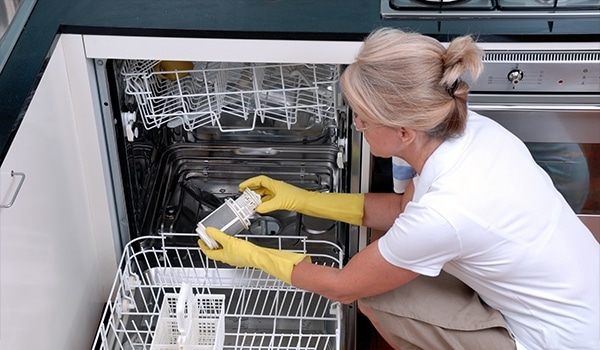Maintaining your appliances is essential for ensuring their longevity and optima...
30 Jul 2024
# 1 Equipment Repairing Service In Houston, TX. Get appointment today

25
Jul
In an age where both environmental sustainability and cost savings are critical, optimizing the energy efficiency of your laundry appliances is a smart move. This comprehensive guide will delve into practical ways to enhance the performance of your washer and dryer, focusing on reducing energy consumption. We'll explore selecting the right appliances, making the most of their features, and adopting habits that contribute to significant energy savings.
Choosing the right laundry appliances can dramatically impact your household's energy usage. Energy-efficient models are not only better for the environment but also for your wallet.
Look for the ENERGY STAR Label: Appliances with this label meet strict energy efficiency guidelines set by the U.S. Environmental Protection Agency and the Department of Energy. Energy-efficient washers can use 25% less energy and 33% less water, while energy-efficient dryers use about 20% less energy than conventional models.
Consider Advanced Features: Modern washers and dryers come with settings that adjust the cycles to be more energy-efficient. Features like moisture sensors, which prevent over-drying by shutting off the dryer when clothes are dry, and high spin speeds in washers, which reduce drying time, are beneficial.
Choose the Right Size: It’s crucial to select a washer and dryer that fit your household’s needs. A larger model than necessary will waste energy, whereas a too-small appliance will necessitate more frequent use.
Your washing habits play a significant role in how much energy your household consumes during laundry.
Opt for Cold Water Washes: Heating water consumes about 90% of the energy used by a washing machine. Switching to cold water for most wash cycles can save a significant amount of energy.
Adjust the Settings: Use the appropriate water level and cycle settings for each load. Avoiding the permanent press cycle, which uses an added rinse and more water, can also reduce energy use.
Wash Full Loads: Washing full loads can save water and energy. However, overloading can decrease the efficiency and necessitate additional cycles.
Dryers are typically one of the most energy-intensive appliances in the home. Here’s how to use them more efficiently:
Utilize Moisture-Sensing Settings: These settings automatically shut off the dryer when clothes are dry, preventing over-drying and, consequently, excessive energy use.
Keep the Lint Filter Clean: A clean lint filter improves air circulation, increases dryer efficiency, and prevents potential fire hazards.
Maintain the Venting System: Ensure that the dryer venting system is clean and unobstructed to facilitate faster drying times and lower energy use.
Beyond choosing and using your appliances wisely, certain habits can help minimize energy consumption.
Air Dry Clothes: Whenever possible, use a drying rack or clothesline. Air drying saves a considerable amount of energy and reduces wear and tear on your clothes.
Perform Regular Maintenance: Regularly inspect and maintain your appliances to ensure they operate efficiently. This includes checking for wear on seals and hoses and ensuring that your machines are level to prevent unnecessary strain on motors and drums.
Optimize Laundry Timing: Run your laundry appliances during off-peak energy hours to take advantage of lower energy rates. This not only saves energy but also reduces your utility bills.
Invest in Smart Appliances: Smart washers and dryers offer features like energy monitoring and control via smartphone apps. These features can help you optimize your laundry habits based on real-time feedback about energy use.
Use Eco-friendly Detergents: Some detergents are designed to perform better in cold water, enhancing the washing process's energy efficiency without sacrificing performance.
By integrating these energy-efficient strategies and maintenance tips into your routine, you can extend the lifespan of your laundry appliances, reduce your environmental footprint, and achieve significant savings on your energy bills. Adopting these practices ensures that your laundry process is as green and cost-effective as possible.





77095, Houston, TX


 stay tuned we are
stay tuned we are

Just leave a request and we will call you back within 10 minutes and provide professional advice.
Your personal data will only be used to contact you and will not be shared with third parties.